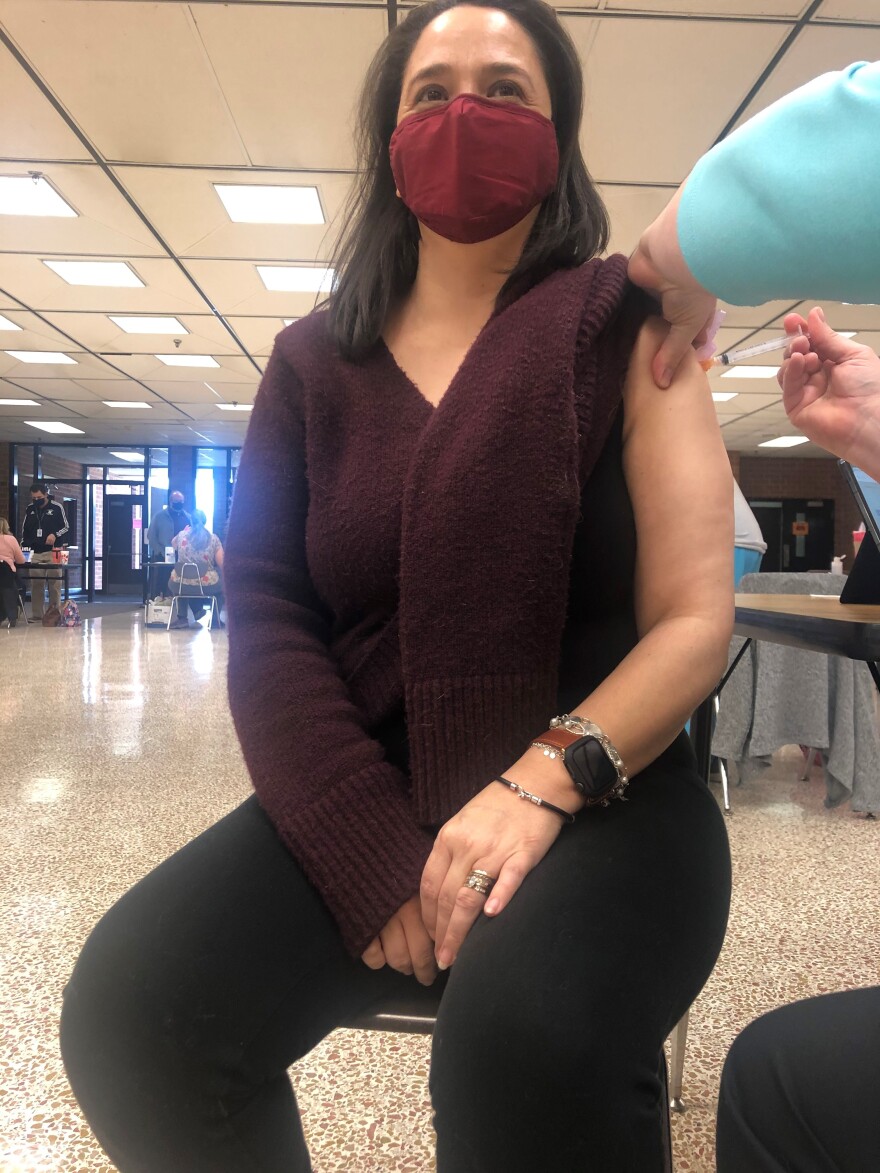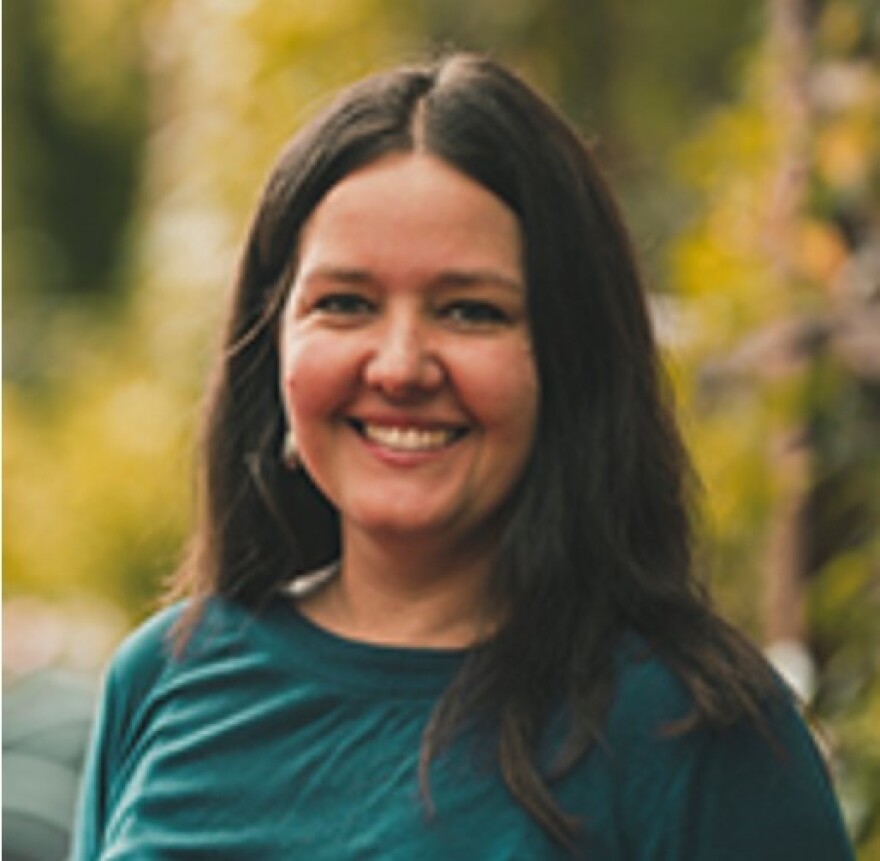COVID-19 vaccines are now widely available around Virginia. But some vulnerable communities face more hurdles in getting the shots. Local agencies and non-profits are trying to help. WMRA’s Bridget Manley reports.
Many people in local immigrant and refugee communities trust Alicia Corral-Clark. She’s a member of the Board of the NewBridges Immigrant Resource Center in Harrisonburg. Over the last few months, she’s been working by phone, often spending much of her free time translating and helping families sign up for the shots in her off time.

ALICIA CORRAL-CLARK: I’ve contacted them, or they’ve contacted me with information. I’ve also contacted some of the local employers to get my information out there, and I register them myself. I get all their information while I’m talking to them on the phone, so that they don’t have to do anything. I send them a picture of the confirmation information. But its just word of mouth, me calling them.
Corral-Clark is part of an effort by local organizations to get vulnerable populations vaccinated. For immigrants, refugees, those experiencing homelessness and other communities with socioeconomic challenges, navigating online portals and showing up to clinics can all be hurdles to receiving a vaccine. These populations have also been disproportionally impacted by COVID-19 cases, because many are essential workers who could not afford the luxury to stay home.
ALICIA HORST: Our primary focus has been to try and communicate as much information as possible through social media, because since the beginning of the pandemic, that is one way that people have been trying to access information of various types, including now - the vaccine.

Alicia Horst is the director of NewBridges, a non-profit organization that helps immigrants and refugees with legal, translation and other services, and helps them find healthcare resources.
HORST: One of the things we’ve been trying to do is create almost like, an information hub, and compile information that we are hearing from various sources on where people can access the vaccine.
Their efforts are working. The Central Shenandoah Health District reports that as of June 1st, they have scheduled 15 clinics onsite at poultry plant facilities, administering more than 2,770 1st and 2nd COVID-19 vaccine doses.
The Virginia Department of Health sponsors programs on WMRA.
Susannah Lepley is the Virginia Director of Immigration and Refugee Resettlement for Church World Service.

SUSANNAH LEPLEY: Now that the vaccine has become widely available, now we are sort of shifting to 'how do we make it easier to get the vaccine' and catch the population who…maybe stay-at-home moms, haven’t had the opportunity to go out, or older folks who can’t go out.
Lepley says they are working with the Virginia Department of Health and Emergency Management to create smaller mobile clinics that can go into neighborhoods and vaccinate people where they live and work. Lepley says that many people are hesitant to get the vaccine, simply because they cannot take a day off if it makes them sick.
LEPLEY: They work in poultry plants and other kinds of essential manufacturing, in healthcare, in industries that have had to keep going. They haven’t had the opportunity to get the vaccine whenever, or to stay at home and quarantine. And so, I think that’s one of the things that people are worried about too, is that 'what happens if I get sick from the vaccine and have to stay home for a couple of days, and my family is relying on my income?'

Meanwhile, getting vaccinated has been even more complicated for those experiencing homelessness. Besides increased isolation during the pandemic, many essential services for them closed because of the outbreak, and that created burnout for the staff and volunteers in already overstretched agencies that serve those communities. Getting vaccines to both staff and those in the homeless community has been essential.
SAM NICKELS: We try to identify folks who have not been vaccinated yet, and then channel them into the current places where they can easily go.
Sam Nickels is the Executive Director of Our Community Place, an organization that provides various services in Harrisonburg for the homeless community. He says one problem is vaccine hesitancy due to misinformation on the internet.

NICKELS: Well, I think people have been influenced by a lot of the 'honey-baloney' that’s out there on social media - the false news stories. So we try to talk through what the real information is from the VDH and from the CDC. We also help people, just to think about real concerns that they have, related to illnesses and conditions that they suffer. And that sometimes takes a while, just to process that and become more comfortable with the idea of getting vaccinated.


